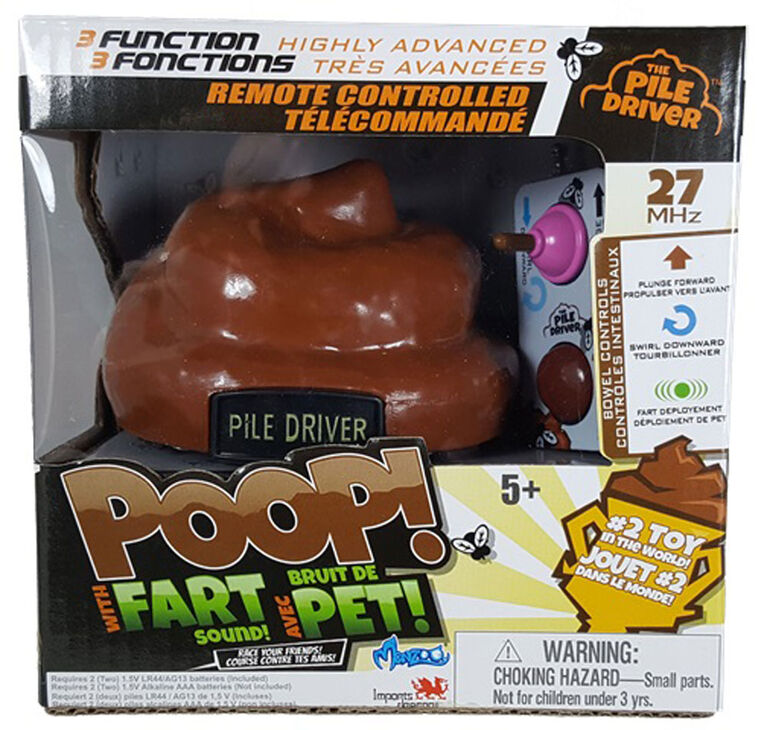Why "Bruits De Caca" Matters: A Deep Dive Into The Unspoken Sounds
Let's talk about something nobody really talks about—bruits de caca. Yep, you heard it right. The sounds of poop are more than just bathroom gossip; they can reveal a lot about your health and digestion. If you've ever wondered why your body makes those noises, you're not alone. This isn't just a quirky topic; it's a crucial part of understanding your gut health.
Now, before you scroll away thinking this is too weird or embarrassing, let me tell you this: everyone experiences it. From the quiet little gurgles to the thunderous rumblings, your digestive system is basically a symphony of sounds. And like any symphony, it tells a story. In this case, it's the story of what's going on inside your body.
So, why should you care? Because those bruits de caca—those gut noises—are your body's way of communicating with you. They can signal everything from a happy, well-functioning gut to potential issues that might need attention. Stick around, and we'll break it all down in a way that's both informative and, dare I say, entertaining.
- Chinese Pregnancy Calendar 2024 Your Ultimate Guide To Predicting Babyrsquos Gender
- Unveiling The Thrills Of Tn Atlanta A Deep Dive Into The Heart Of Southern Charm
Here’s what we’ll cover in this article:
- What Are Bruits de Caca?
- Common Causes of Gut Noises
- The Link Between Bruits de Caca and Health
- How to Diagnose Digestive Issues
- Treatment Options for Gut Noises
- Nutrition Tips for a Quieter Gut
- Debunking Common Myths About Bruits de Caca
- Preventive Measures for a Happy Gut
- The Science Behind Gut Sounds
- Wrapping It All Up
What Are Bruits de Caca?
Alright, let's get down to the nitty-gritty. Bruits de caca, or the sounds your gut makes, are basically the noises produced by the movement of gas and fluids in your intestines. Think of your digestive system as a busy highway where food particles, enzymes, and gases are constantly moving around. When they move, they create vibrations that we hear as those familiar gurgles and rumblings.
But here's the thing: these sounds aren't random. They follow a pattern and can vary depending on what's happening inside your body. For instance, if you've just eaten a big meal, you might hear more activity as your stomach works overtime to digest all that food. On the flip side, if you're fasting or haven't eaten in a while, those noises might become quieter.
- Spidey Must Resist Temptation Comics Shehulks Magnetic Pull
- Breaking Down The Melimtx Leak What You Need To Know
Types of Gut Sounds
There are different types of bruits de caca, each with its own significance. Here are a few examples:
- Gurgling: This is the most common sound and usually indicates that your intestines are actively digesting food.
- Rumbling: Often heard when you're hungry, this sound happens because your stomach is contracting to signal that it's time to eat.
- Growling: Similar to rumbling but more intense, growling sounds can indicate increased intestinal activity.
Common Causes of Gut Noises
So, what causes all these noises? Well, there are several factors at play. First and foremost, it's all about digestion. As food moves through your intestines, it gets broken down into smaller components. This process involves the movement of muscles and the release of gases, which naturally create sound.
But sometimes, those sounds can be amplified or altered due to certain conditions. For example:
- Food Sensitivities: If you're lactose intolerant or have a gluten sensitivity, your gut might react by producing more gas and, consequently, more noise.
- Stress: Emotional stress can affect your digestive system, leading to increased gut activity and louder noises.
- Infections: Bacterial or viral infections can disrupt normal gut function, causing unusual sounds and discomfort.
How Diet Affects Bruits de Caca
Your diet plays a huge role in determining how noisy your gut is. Certain foods are known to be gas-producing culprits, such as beans, broccoli, and carbonated drinks. On the other hand, a diet rich in fiber can help regulate digestion and reduce excessive noise.
The Link Between Bruits de Caca and Health
Now, here's where things get interesting. Those bruits de caca aren't just random noises; they can actually provide valuable insights into your overall health. For instance, if you notice a sudden increase in gut noises accompanied by other symptoms like pain or bloating, it could be a sign of an underlying issue.
Conditions like irritable bowel syndrome (IBS), inflammatory bowel disease (IBD), and even food intolerances can manifest through increased gut activity. So, paying attention to your gut sounds can help you identify potential problems early on.
When to See a Doctor
While occasional gut noises are normal, there are certain red flags you should watch out for:
- Persistent or severe pain
- Blood in stool
- Unexplained weight loss
- Chronic diarrhea or constipation
If you experience any of these symptoms, it's a good idea to consult a healthcare professional. They can perform tests and provide a proper diagnosis.
How to Diagnose Digestive Issues
Diagnosing digestive issues involves a combination of physical exams, medical history review, and diagnostic tests. Your doctor might ask you questions about your symptoms, diet, and lifestyle to get a better understanding of what's going on.
Some common diagnostic tools include:
- Endoscopy: A procedure where a small camera is inserted into your digestive tract to examine its lining.
- Colonoscopy: Similar to an endoscopy but focused on the colon and rectum.
- Ultrasound: Uses sound waves to create images of your internal organs.
Importance of Early Diagnosis
Early diagnosis can make a huge difference in managing and treating digestive issues. By catching problems early, you can prevent complications and improve your quality of life.
Treatment Options for Gut Noises
Once a diagnosis is made, treatment options can vary depending on the underlying cause. For minor issues, simple lifestyle changes might be enough. But for more serious conditions, medication or even surgery might be necessary.
Some common treatment approaches include:
- Medications: Antispasmodics, antibiotics, or antacids can help manage symptoms.
- Dietary Adjustments: Eliminating trigger foods and incorporating gut-friendly options can reduce noise.
- Stress Management: Techniques like yoga, meditation, or therapy can help calm your gut.
Natural Remedies for a Quieter Gut
If you're looking for natural ways to reduce gut noises, here are a few tips:
- Stay hydrated
- Eat smaller, more frequent meals
- Avoid trigger foods
- Incorporate probiotics into your diet
Nutrition Tips for a Quieter Gut
Your diet has a direct impact on your gut health. By making smart food choices, you can minimize those bruits de caca and keep your digestive system running smoothly.
Here are some nutrition tips:
- Focus on Fiber: Foods like fruits, vegetables, and whole grains can promote healthy digestion.
- Limit Processed Foods: These can be hard on your gut and lead to excessive noise.
- Stay Balanced: Aim for a balanced diet that includes all essential nutrients.
Probiotics and Gut Health
Probiotics are beneficial bacteria that live in your gut and support digestion. Including probiotic-rich foods like yogurt, kefir, and sauerkraut in your diet can help maintain a healthy gut environment.
Debunking Common Myths About Bruits de Caca
There are plenty of myths surrounding gut noises, and it's time to set the record straight. Here are a few:
- Myth: Loud gut noises always mean something's wrong. Fact: Not necessarily. Sometimes, it's just your gut doing its job.
- Myth: Eating less will reduce gut noises. Fact: Eating too little can actually slow down digestion and lead to more noise.
- Myth: All gut noises are bad. Fact: Some noises are perfectly normal and indicate a healthy digestive system.
Why Knowledge is Power
Understanding the truth about bruits de caca can empower you to take control of your gut health. By separating fact from fiction, you can make informed decisions about your diet and lifestyle.
Preventive Measures for a Happy Gut
Prevention is always better than cure. By adopting a few simple habits, you can keep your gut happy and reduce those pesky noises.
Here’s how:
- Exercise Regularly: Physical activity can stimulate digestion and promote gut health.
- Manage Stress: Find ways to relax and unwind to prevent stress-related gut issues.
- Get Enough Sleep: Rest is crucial for overall health, including gut health.
Building a Routine
Creating a daily routine that includes healthy eating, exercise, and stress management can go a long way in maintaining a happy gut. Consistency is key, so stick with it!
The Science Behind Gut Sounds
For those who want to dive deeper, let's talk science. Gut sounds are produced by the movement of gas and fluids through the intestines. This movement is controlled by the muscles in your digestive tract, which contract and relax to push food along.
Interestingly, the frequency and intensity of these sounds can vary based on factors like age, gender, and overall health. Studies have shown that certain conditions, such as diabetes, can affect gut motility and, consequently, the sounds it produces.
Future Research
As our understanding of the gut-brain axis grows, researchers are exploring new ways to study and interpret gut sounds. Advances in technology might one day allow us to use these sounds as diagnostic tools, providing a non-invasive way to assess gut health.
Wrapping It All Up
In conclusion, bruits de caca might not be the most glamorous topic, but they're incredibly important when it comes to understanding your gut health. By paying attention to these sounds and making informed choices about your diet and lifestyle, you can keep your digestive system running smoothly.
So, the next time you hear those gurgles and rumbles, don't ignore them. Instead, think of them as a conversation with your body. And if you're ever concerned about what you're hearing, don't hesitate to reach out to a healthcare professional.
Thanks for sticking around, folks! Now it's your turn. Have you noticed any changes in your gut sounds lately? Share your thoughts in the comments below, and don't forget to check out our other articles for more insights into health and wellness. Stay curious, stay informed, and most importantly, stay healthy!


Detail Author:
- Name : Dr. Vada Corkery
- Username : slebsack
- Email : erdman.misael@hotmail.com
- Birthdate : 1985-07-15
- Address : 741 Amber Stravenue Apt. 840 Merrittstad, DE 74433-5322
- Phone : +1-564-659-4566
- Company : Okuneva, Schuppe and Kuphal
- Job : Benefits Specialist
- Bio : Rerum unde ut facere voluptates hic. Eveniet sequi magnam quasi quisquam similique eius. Et qui eos dolores provident.
Socials
tiktok:
- url : https://tiktok.com/@hartmannd
- username : hartmannd
- bio : Consequatur nobis porro reprehenderit non autem.
- followers : 548
- following : 2010
twitter:
- url : https://twitter.com/demario_hartmann
- username : demario_hartmann
- bio : Blanditiis ut ut asperiores amet. Corporis qui aut in ut enim quisquam enim. Quia exercitationem velit illo voluptates sapiente.
- followers : 2568
- following : 1069
linkedin:
- url : https://linkedin.com/in/demario_hartmann
- username : demario_hartmann
- bio : Officiis ullam placeat facere id dolor et.
- followers : 3148
- following : 2863
instagram:
- url : https://instagram.com/demario_id
- username : demario_id
- bio : Nulla cumque deleniti ad odit porro. Nobis aut molestias quae dolores.
- followers : 961
- following : 678